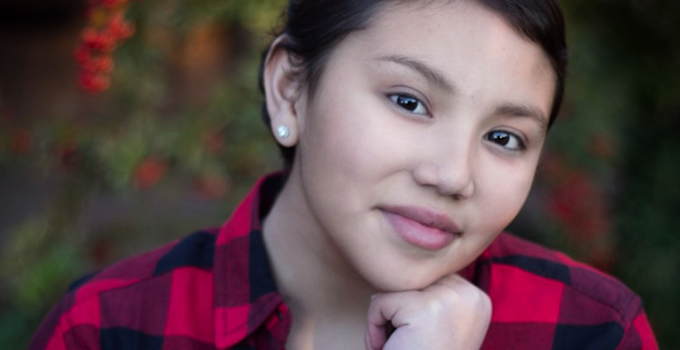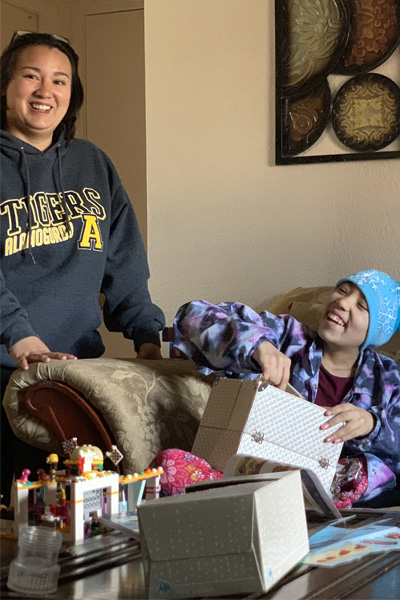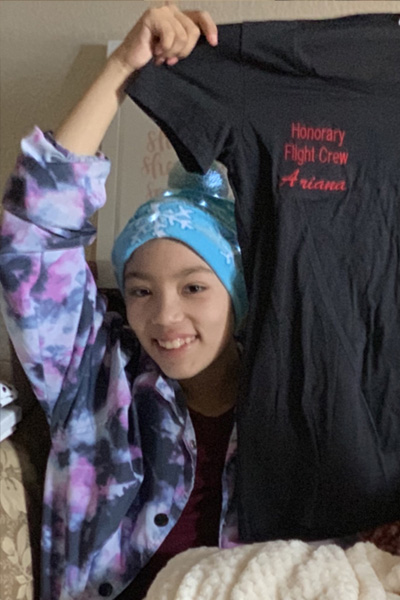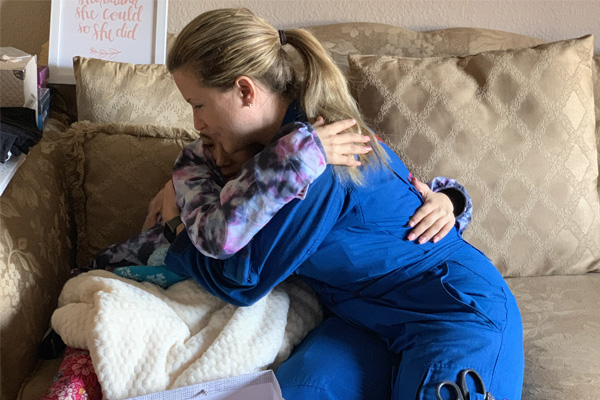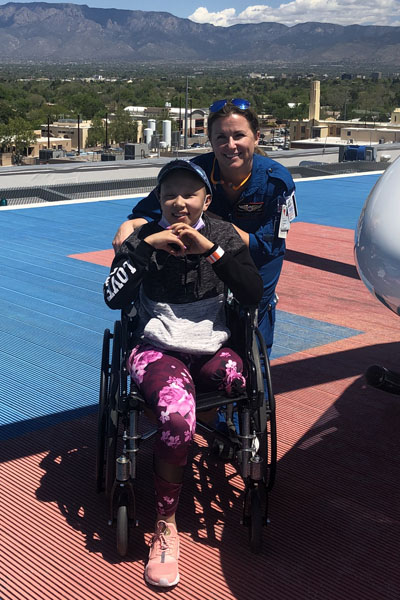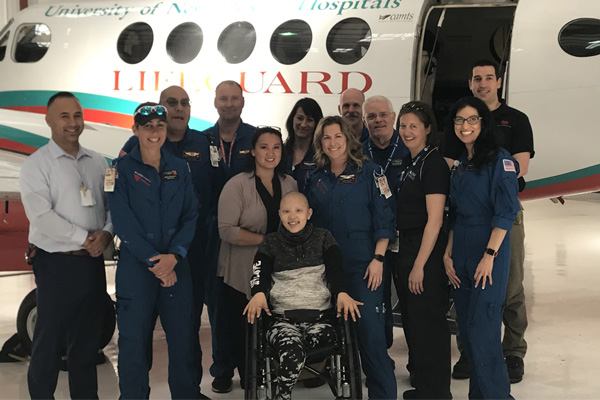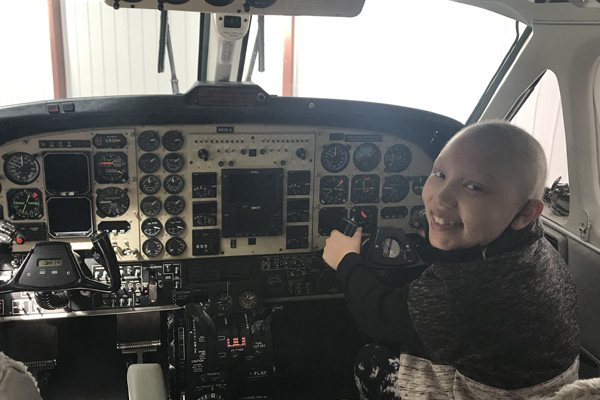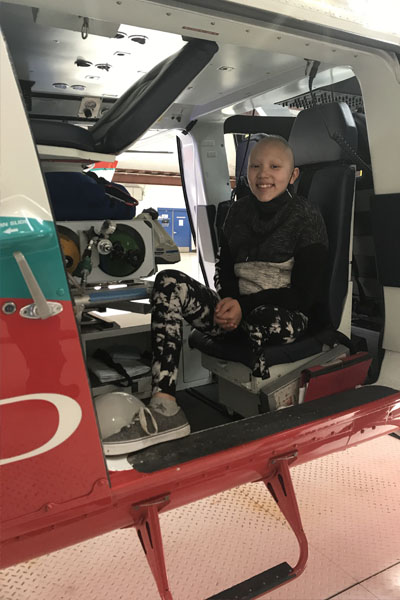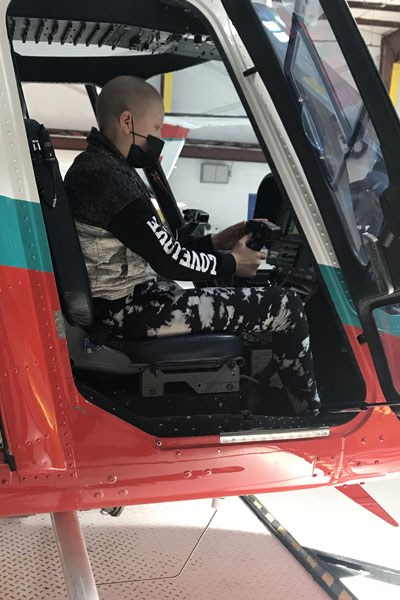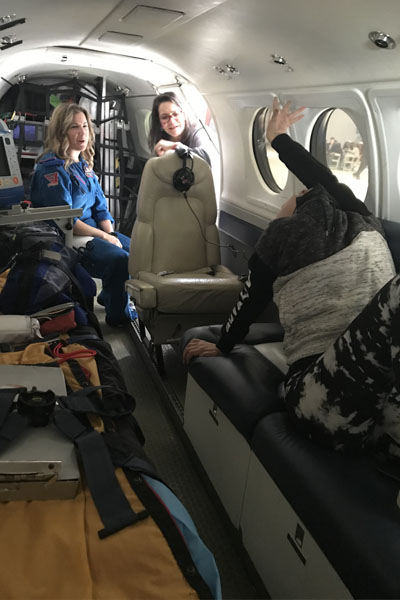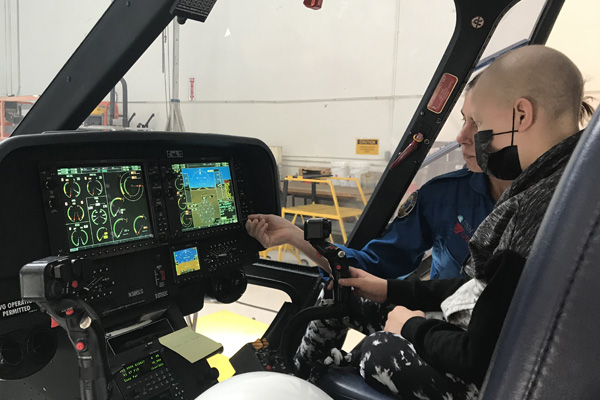In July of 2018, Ashley Rabago received news no mother wants to hear. Her daughter, Ariana Diaz, was diagnosed with stage 4 metastatic osteosarcoma, just days after her 11th birthday.
“It was aggressive when we found it,” Rabago said. “It was found in her left femur, above her knee, and in both lungs.”
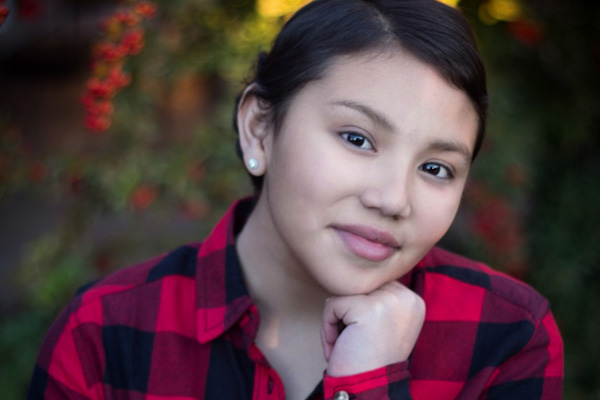
On top of navigating a devastating diagnosis at such a young age, Ariana’s care was further complicated by an hours-long commute between her home in Alamogordo and The University of New Mexico Hospital in Albuquerque.
“It was a nightmare to get her transferred back over there because they wouldn't allow me to drive her, she needed to be airlifted, the hospital wasn't sure how to coordinate that, we had a new nurse at the time,” Rabago explained. “A lot of things were kind of against us. I was new to it.”
After half a year of adjusting to their harsh new reality, Rabago said the Lifeguard Team at UNM Hospital came into their lives with a lifeline during an especially rough night in the emergency room at Gerald Champion Regional Medical Center in Alamogordo.
“We had fallen asleep in that little tiny bed in the ER, and I remember getting woken up by Amy,” Rabago recalled. “I'm half asleep, Ariana did not want to go and Amy's like, ‘don't worry mom, she's in good hands.’”
“It was back in early December of 2018,” Lifeguard flight nurse Amy Armbruster, RN, BSN, CFRN, CCRN said, recounting the first moment she met the young patient who would soon become family. “She immediately started joking with me and smiling, and I was like, ‘Is this really an 11-year-old girl with cancer?’ We just hit it off immediately.”
Armbruster and her flight partner flew with Ariana, while Rabago drove to meet them in Albuquerque.
“It's so hard to put your child on a plane knowing that you can't be with them for hours,” Rabago said, wiping away tears at the memory. “I hit one spot that had just enough service, and I got a text from Amy. She's made it there. She's in her room. She tells me where she is and that they had a great time. She actually stayed with her for a little bit, and sent me pictures as well.”
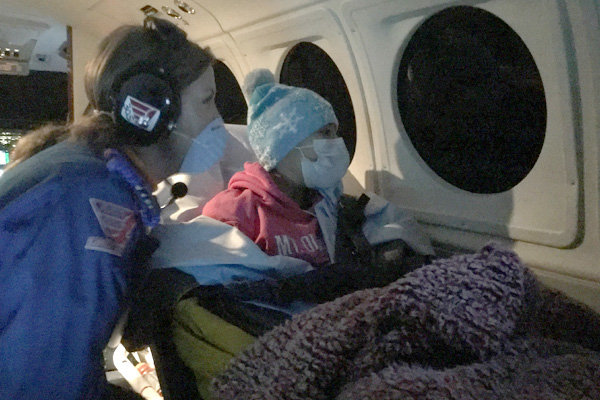
A touching photo of Ariana and Armbruster looking at the city lights from the plane window was the first of many to be taken of the pair over the next year.
On the flight home from that first meeting, Armbruster decided she wanted to stay in touch. So, with support from Lifeguard, she and her partner surprised Ariana’s family for Christmas.
“We ended up getting gifts for both Ariana and her brother, Christian, something to help her mom out in the meantime, and we flew down to Alamogordo,” Armbruster said. “We went to their house and we had a nice little Christmas.”
The flight nurse said she continued to visit Ariana every time she was admitted for treatment at UNM Hospital, and occasionally Ariana and her mother would attend family dinner at Armbruster’s house.
“All my daughter wanted to do was go up and down her stairs and slide down, and I was like ‘how she gonna do this?’” Rabago said. “She had her leg amputated at this point. So, I was a little nervous, but she found a way. She slid all the way down.”
Armbruster fed Ariana’s craving for adventure, giving her a tour of the Lifeguard hangar, home to multiple planes and helicopters.
“I think she pushed every button in there as well,” Rabago said, laughing at the memory.
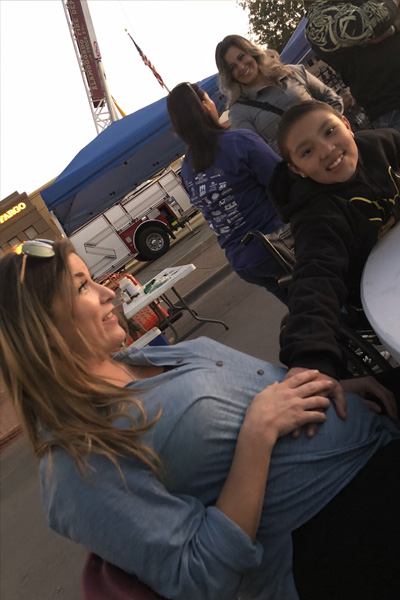
Of all the moments Ariana shared with her new friend in 2019, none was more exciting or special than Armbruster’s pregnancy.
“I have a picture of her and Amy, and she's feeling baby move,” Rabago said. “She didn't know that you could feel babies inside, and so that was cute. “
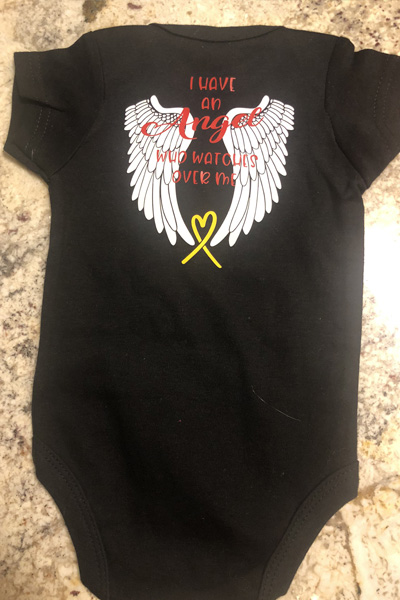
That picture was taken the last time Armbruster saw Ariana. As she neared the end of her pregnancy in December of 2019, Ariana’s health took a turn.
“We knew that she wasn't going to be able to make it up here to see my baby,” Armbruster said. “So, Ariana told her mom she would be his guardian angel.”
The 12-year-old was determined to be a part of the life of the baby she would never meet. So, she arranged for her grandmother to make onesies for him with wings and a yellow heart, the color for childhood cancer.
“He wore them, he grew out of them, but they're tucked away in a special place,” Armbruster said. “I know she visits him. He would laugh or just smile, and I just kind of thought, you know, maybe it's her coming to say hello.”
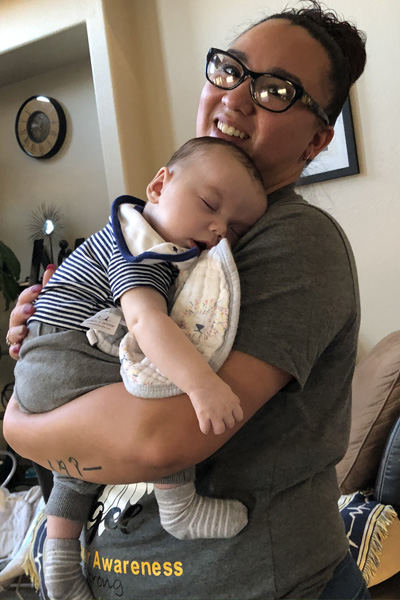
Ariana passed away at home with her family on Jan. 3, 2020. Rabago asked Armbruster to speak at their daughter’s funeral. So, she packed up her car and brought her newborn baby to Alamogordo, at just 19 days old.
“It was one of the most poignant moments of my career,” Armbruster said. “I've spoken at a lot of conferences. I've been around a lot of very amazing people, and this was by far the hardest thing that I've ever had to do in front of a group of people or a crowd, and I'm glad I got there, and the family got to see my baby.”
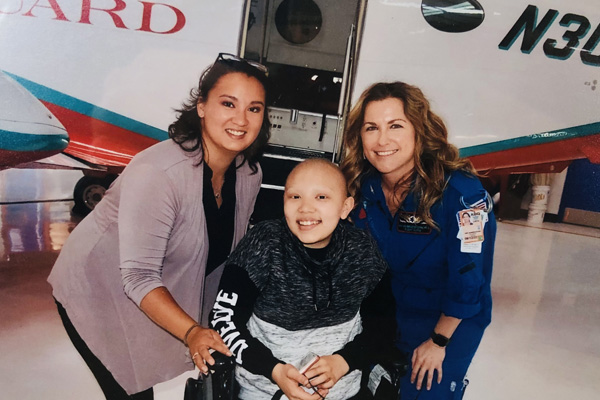
Armbruster and Rabago remain friends to this day.
“Lifeguard is truly a blessing,” Rabago said. “They're the faces that in a crisis or an emergency situation, you want them there.”
Both women said they have Lifeguard--the program now celebrating 40 years at UNM Hospital--to thank for their special friendship.
“It's not always the family that you want to be a part of,” Rabago said. “But in your time of need, suffering, sometimes you need to laugh. Sometimes you need to cry. Sometimes you just need somebody to remind you that it's not all horrible.”
“I really, truly believe that the power of the universe brought us together,” Armbruster said.
Celebrating UNM Lifeguard’s 40th Anniversary
- Lifeguard was the first air medical transport program in New Mexico when it started in 1983.
- UNM Lifeguard is a state-owned flight program and not-for-profit
- The team currently has 2 planes and 1 helicopter (affectionately called Sophia), transporting nearly 2,000 patients every year.
- The aircraft, pilots and mechanics are leased from 7Bar aviation
- UNM Lifeguard serves patients throughout New Mexico and adjacent areas including the Navajo Nation and transports them to care both in and outside of New Mexico.
- The Child Specialty Team (CST) was created in 2016 and allows for UNM Lifeguard to transport patients of all ages, including newborns.
- Lifeguard Name: The term “Lifeguard” used to be the aviation term used for a medical flight to get Air Traffic Control priority treatment. If you put “Lifeguard” before your airplane tail number, Air Traffic Control knew you had a patient onboard or were going to get one. That’s how UNM Lifeguard got its name. (The terminology has since changed to Medevac)
-
Find out more about the UNM Lifeguard team HERE!
